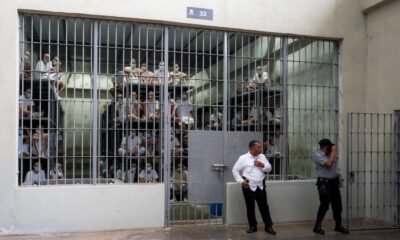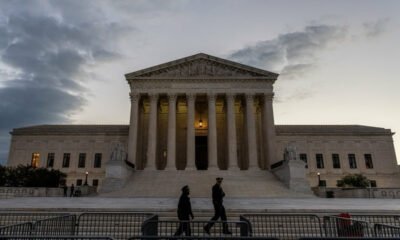2022 election
Appeals Court Declares Legislative Immunity Cannot Shield Election Results Refusal

In a significant legal ruling, an Arizona appeals court determined that Cochise County Supervisor Tom Crosby is not protected by legislative immunity in the ongoing dispute regarding the 2022 midterm election certification. The court upheld a lower court’s decision, which found Crosby’s actions in delaying the election’s certification were not shielded by legislative immunity.
Crosby, alongside fellow Republican Supervisor Peggy Judd, faces felony charges of conspiracy and election interference. These charges stem from their failure to certify election results by the state-imposed deadline. Their Democratic colleague, Supervisor Ann English, opposed the delay and pushed for timely certification.
The 2022 election in Cochise County was contentious, influenced by false claims of fraud from certain Republican candidates. Ultimately, the board’s certification only occurred after a court mandated it, marking Cochise as the sole county in Arizona to miss the November 28 deadline.
Judge Paul McMurdie noted that Crosby acknowledged during grand jury testimony he had no justification for postponing certification. In response to the ruling, Crosby’s attorney, Dennis Wilenchik, expressed strong disagreement, asserting the court’s findings were legally flawed.
In October, Judd accepted a plea deal that reduced her charges to a misdemeanor, allowing her to retain her board position. She was sentenced to 90 days of unsupervised probation and fined $550.
Crosby has sought to dismiss the charges, claiming they were improperly filed and citing legislative immunity. His request was denied, prompting the appeal that the court ultimately rejected.
According to the court, Crosby’s duty to certify the election was mandatory rather than discretionary. The appeals judges also affirmed that delays in Cochise County affected certification processes in Maricopa County. Thus, they ruled that determining Crosby’s potential election interference should be left to a jury.
Wilenchik criticized the prosecution as politically motivated, arguing that expressing due diligence in ensuring valid vote counts should not warrant criminal charges. He attributed the delays to procedural mismanagement by Supervisor English.
The controversy traces back to discussions at board meetings where unfounded allegations about voting machines persisted, despite reassurances from election officials. Despite warnings that failing to certify could lead to legal repercussions, Crosby and Judd delayed the canvass vote.
A jury trial for Crosby is scheduled for January 30, as Cochise County continues to grapple with the ramifications of its supervisors’ actions related to election credibility. The county’s board has recently faced criticism for attempting to conduct a hand count of ballots based on unsubstantiated claims of election fraud.
Cochise County officials were previously ordered to pay $36,000 in legal fees related to their failure to certify the election in accordance with state law.

















